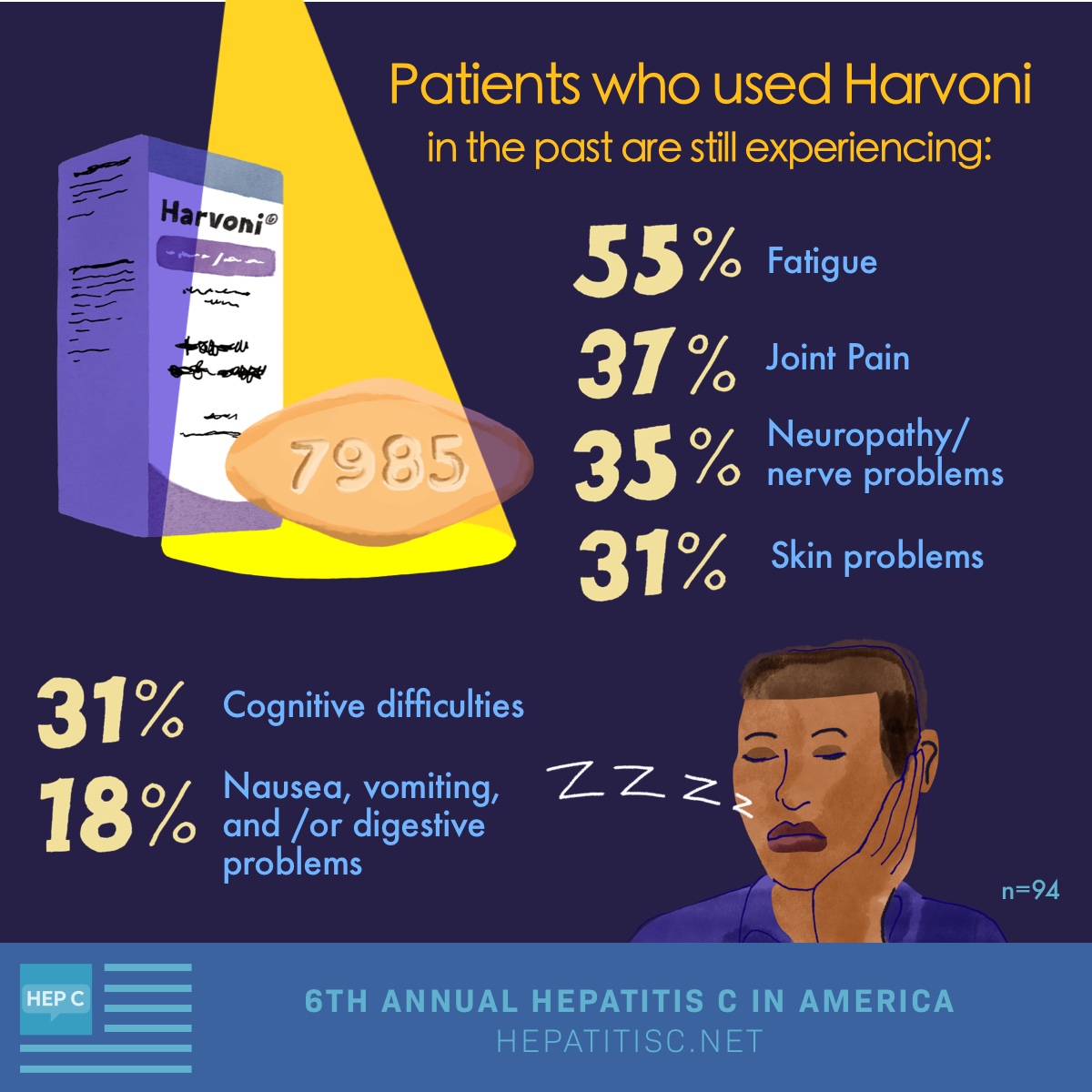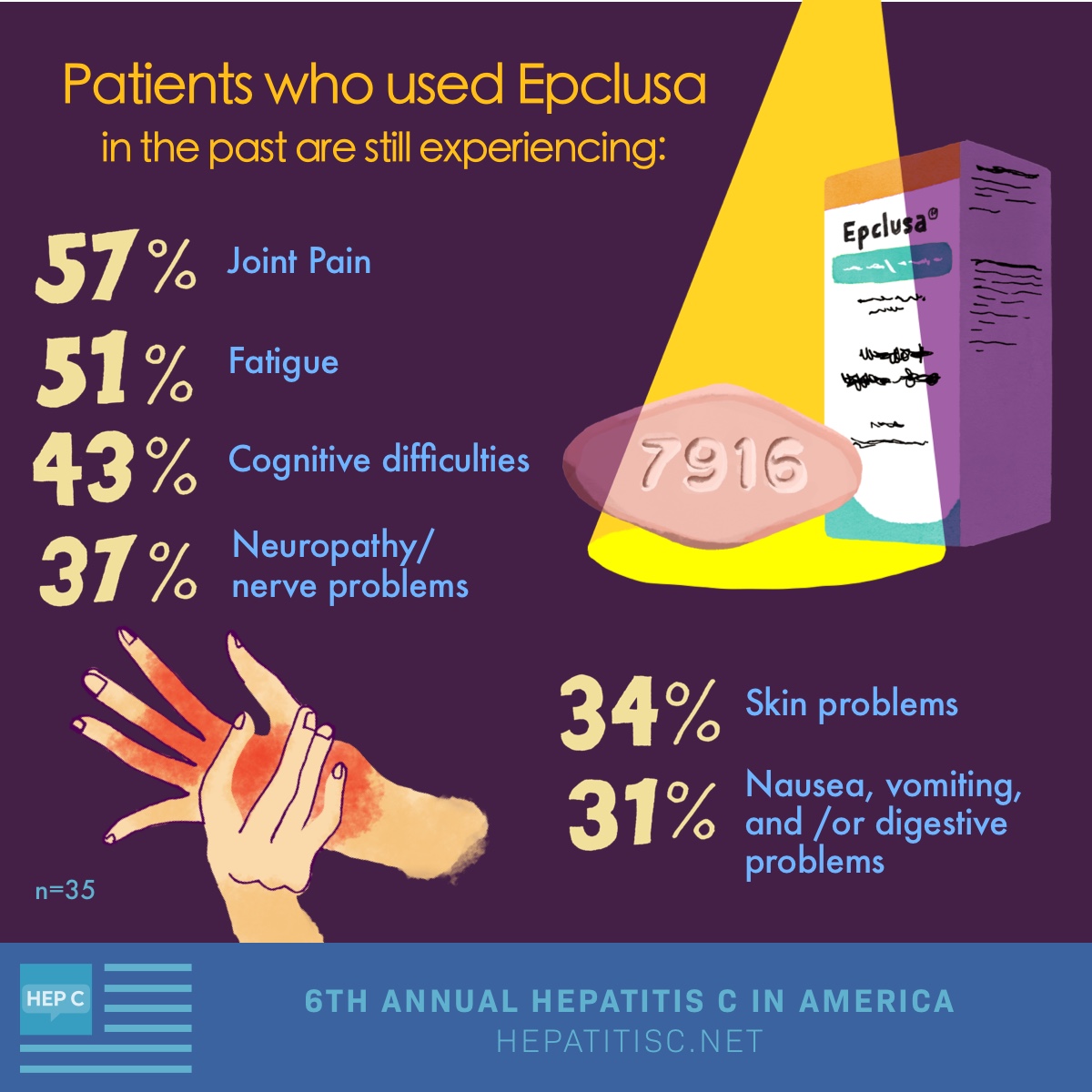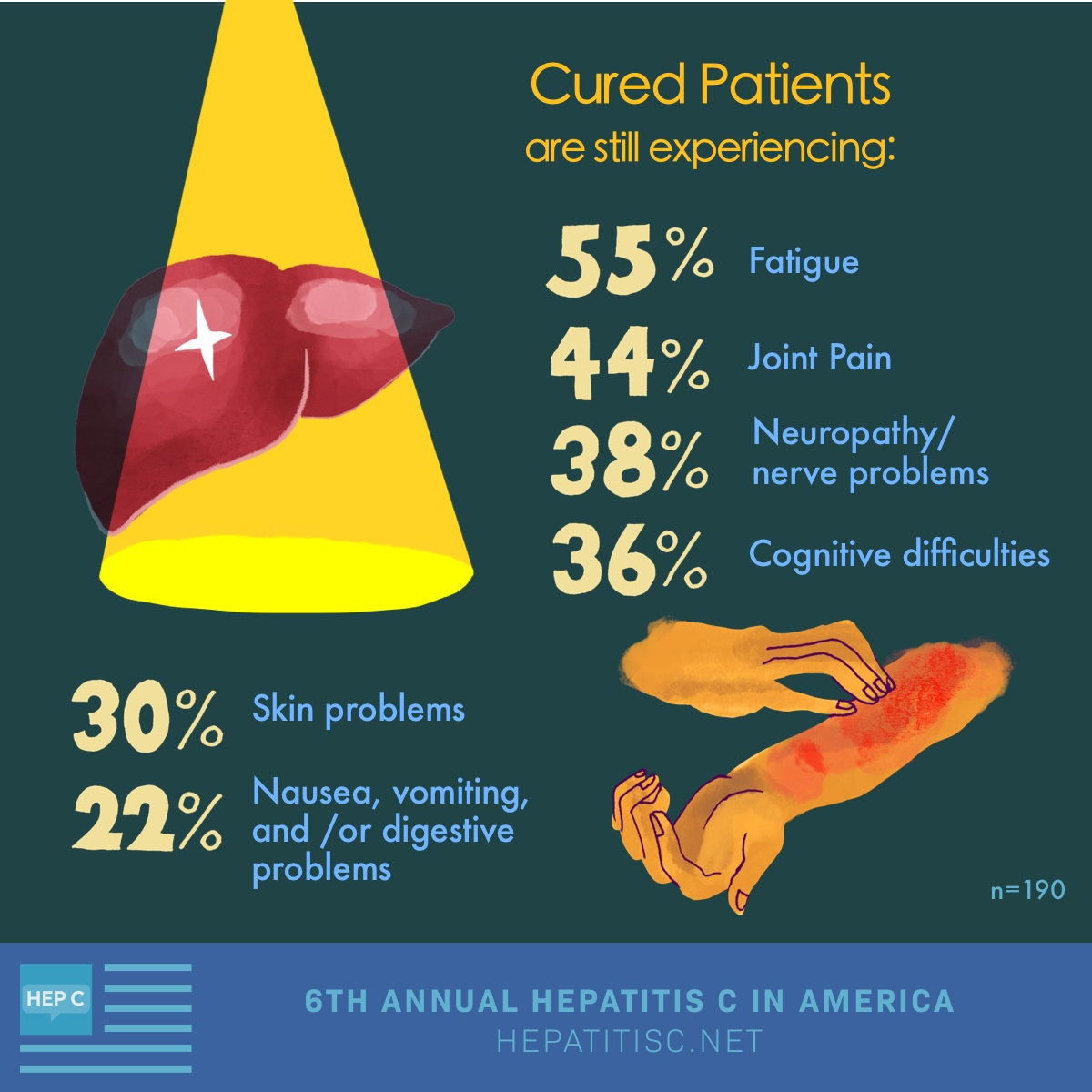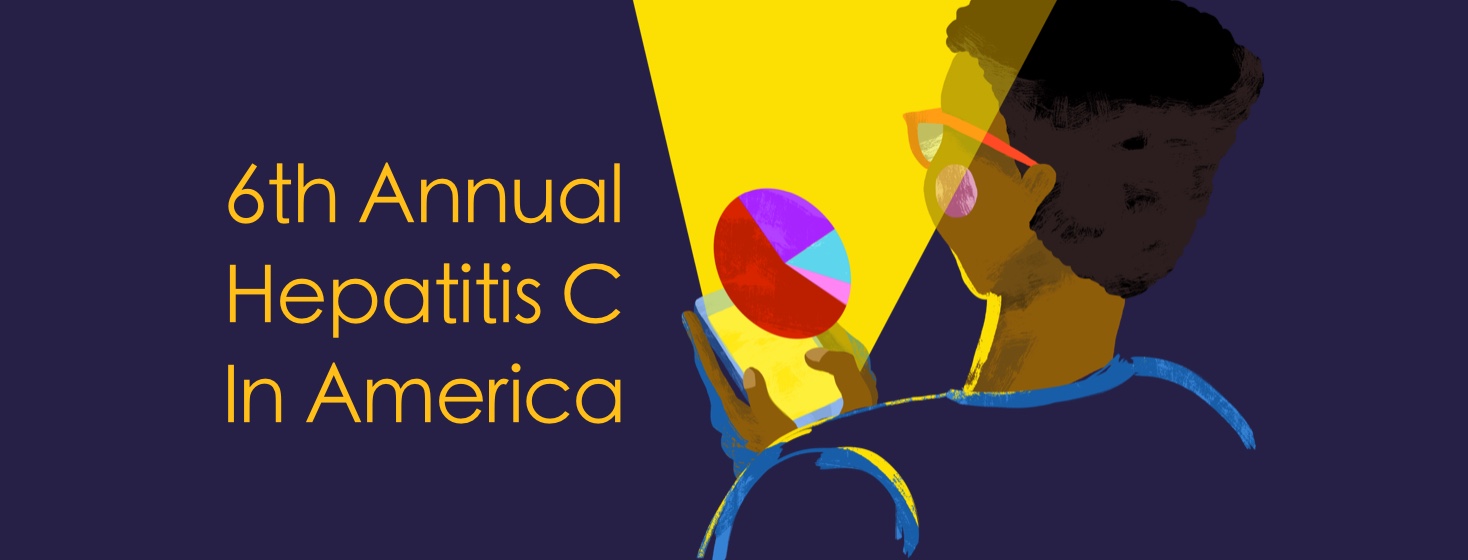What Are The Long-Term Side Effects of Hepatitis C Treatment? Results from the 2020 Hepatitis C In America Survey
Nearly 4 million Americans are living with hepatitis C. Without treatment, hepatitis C can lead to health complications like cirrhosis and liver cancer. However, hepatitis C can now be treated in as little as 8 to 12 weeks. Many of our HepatitisC.net community members have questions about long-term side effects.
To better understand our community’s experiences with hepatitis C treatment, we conducted our 6th Annual Hepatitis C In America survey. More than 400 people shared their experiences and provided insight into the long-term side effects of treatment.
What are the long-term side effects of Harvoni?
Harvoni is 1 treatment option for hepatitis C. Harvoni is a direct-acting antiviral drug that can be used for both adults and children with hepatitis C.
When we asked our hepatitis C community members about their experiences with Harvoni:
- 39 percent had used Harvoni in the past and were cured
- 17 percent had used Harvoni in the past but were not cured
- 3 percent were currently using Harvoni (not yet cured)
When we asked about long-term side effects, we found that many community members are still experiencing side effects – weeks, months, or even years after finishing treatment.

What are the long-term side effects of Epclusa?
Epclusa is another medicine used to treat hepatitis C. Like Harvoni, Epclusa is a direct-acting antiviral drug that can be used for adults and children with hepatitis C. Epclusa was approved more recently than Harvoni, so fewer of our community members have used Epclusa before.
When we asked our members about their experiences with Epclusa:
- 14 percent had used Epclusa in the past and were cured
- 8 percent had used Epclusa in the past but were not cured
- 13 percent were currently using Epclusa (not yet cured)
Like with Harvoni, many community members are still experiencing side effects after Epclusa treatment.

Do treatment side effects go away after being cured?
After being cured of hepatitis C, most people experience fewer hep C symptoms (such as brain fog, trouble sleeping, depression, anxiety, muscle/joint pain, and skin problems), as well as increased energy levels. Getting cured also reduces your risk of liver cancer, kidney disease, and other extrahepatic manifestations of hep C.
When thinking about starting treatment or getting cured, many people have questions. When we asked people who have not yet been cured, 69 percent said they are worried about the long-term side effects/symptoms of hepatitis C.* To help these people to know what to expect, we asked our cured community members what side effects they are still experiencing.

Every person is different
While getting cured of hepatitis C can reduce your risk of liver cancer and lessen the symptoms you experience, it is normal to wonder about the long-term side effect of hepatitis C and its treatment. While we hope this information has been helpful in understanding the possible side effects of hep C treatment, every person's experience is different. If you have questions about hepatitis C, treatment, or possible side effects, please ask your doctor or healthcare team – they can provide the best information about whether or not treatment is right for you.
*Top 2 responses on a 7-point scale
The 6th Annual Hepatitis C In America survey was conducted online from April through August 2020. Of the 407 people who completed the survey, 190 were people who had been cured and 217 were people who are not yet cured.

Join the conversation